Tags
Related Posts
Share This
Bellamy Brings It
“To begin with, I’m not white, I’m not old, and I’m not dead,” says 35-year-old Albuquerque Poet Laureate Hakim Bellamy during a Nov. 19 event at the Santa Fe University of Art and Design. “Those are the things that usually fly with canonical poets, so really it’s pleasantly surprising to be poet laureate so early in my career.”
Poetry came into Bellamy’s life “through the back door.” He found a voice through the open mic scene in Philadelphia where he would sometimes perform his poems, and discovered with surprise that “people cared what it was like to be me, even if they weren’t from the same background or didn’t look like me.”
“I didn’t consider myself a poet though,” explains Bellamy, laughing at the thought of calling himself a poet, “until I moved to Albuquerque in 2005 for a Communications degree from UNM.” Bellamy entered into a poetry slam at Winnings coffee shop after seeing teen poets Esmee Van Dreger and Joseph Romero “kicking ass” at a previous event there. He entered, he performed, and he won.
“It’s a little bit of a Cinderella story,” says Bellamy. The next thing he knew, he was competing with the Albuquerque city team and, eight months later, they won the National Slam Poetry Competition.
Bellamy’s original intention behind coming to Albuquerque, however, remains a key part of his poetry. In a workshop for SFUAD students prior to his reading, Bellamy facilitated discussion about creative non-fiction and where it overlaps with both poetry and journalism. His poems are what he calls, “a sort of mish-mashed reporting of the facts,” and are rooted in research.
“Facts are like the stars of a constellation,” says Bellamy. “When you tell the story of something that happened, you can connect those stars in new and interesting ways.” The facts, however, remain untouchable.
“I don’t do research for my writing because I want to be right,” Bellamy explains. “I do research because I don’t want to be wrong. The way I see it, you can extrapolate up from the facts all you want, but you can’t break down past the factual foundation.” In order to “extrapolate up” from the factual foundations of his work, Bellamy pulls out his old “memory encyclopedia,” and the poetry flows into his stories.
Bellamy also values the performance aspect of storytelling.
“When you’re a performer,” he says, “your body is really your vehicle.” He began his reading “with some hip-hop,” saying, “I always start out singing, because by the end of the night I’m hoarse.”
Bellamy carries the same amount of energy and dedication into his work as Albuquerque Poet Laureate.
“Being chosen to be poet laureate isn’t about who has the best poetry,” says Bellamy. “It’s about who is willing to serve, who has personality. My job is to bring poetry to places where people don’t necessarily understand what the arts can do for their life, who don’t value art. It’s not about sharing poetry at a reading where everybody is appreciative and shows it with their little golf-clap. That’d be what we call preaching to the choir.”
If Bellamy’s body is the vehicle for his own poetry, he has opened up other vehicles for poetry in the city of Albuquerque. In a project organized through the city’s Public Arts Commission, Bellamy arranged to have poetry submitted by community members and placed in the empty add spaces on inner city busses.
In another project that has been a part of Bellamy’s laureateship, he helped to install a mural of one of his poems.
“This has been my favorite project so far,” says Bellamy, “because I sat in on different parts of the whole process—the kilning of the tiles, the tiling. It’s very physical work, and unlike the normal work of a writer, it was a collaborative effort, there was a sense of community in the creation of the mural.”
As a non-native to Albuquerque, Bellamy is also learning about community by being on the receiving end of inclusiveness.
“I’d love to be optimistic enough to say that it doesn’t matter that I’m black,” he says, “but at the end of the day that’s really a sort of naivety. The fact that I’m black or, more importantly, that I’m not from Albuquerque, has been a huge part of the challenge of my job as laureate. But that position is really a blessing. Hopefully I’m changing people’s perceptions about what a poet of the arts is in more ways than one. And really, I’ve had an enchanting experience with Albuquerque—the city has taken me in like an adoptive son.”
Video by Nick Beckman






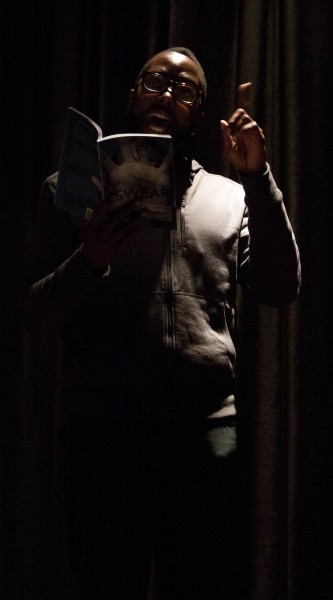
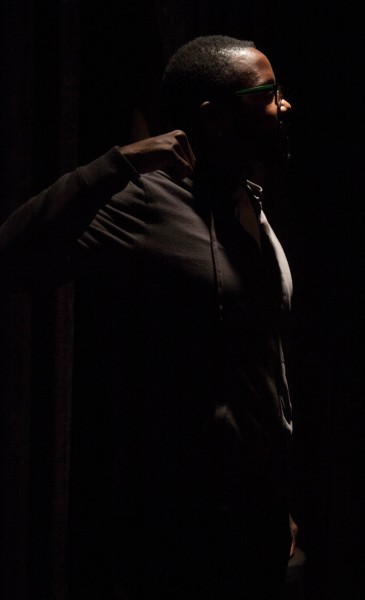
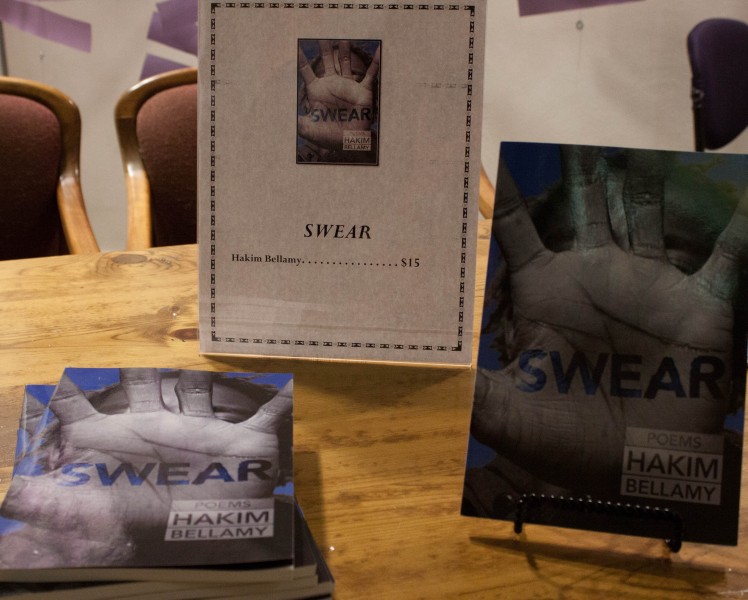
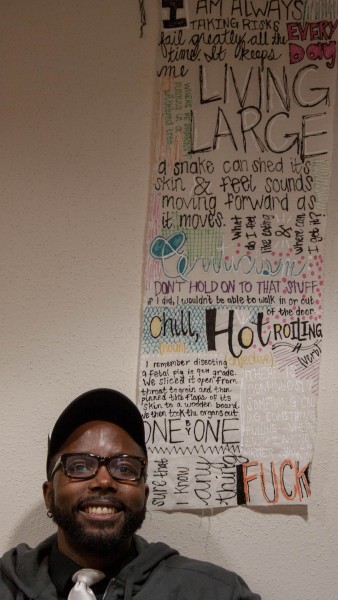
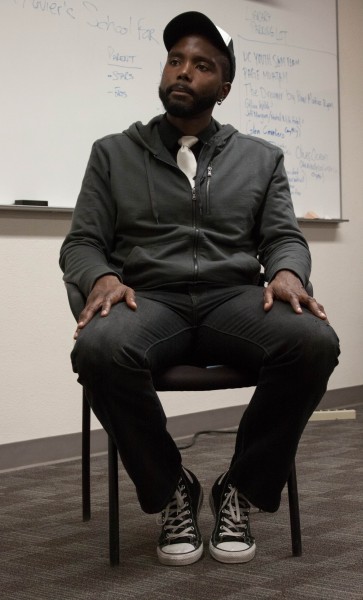
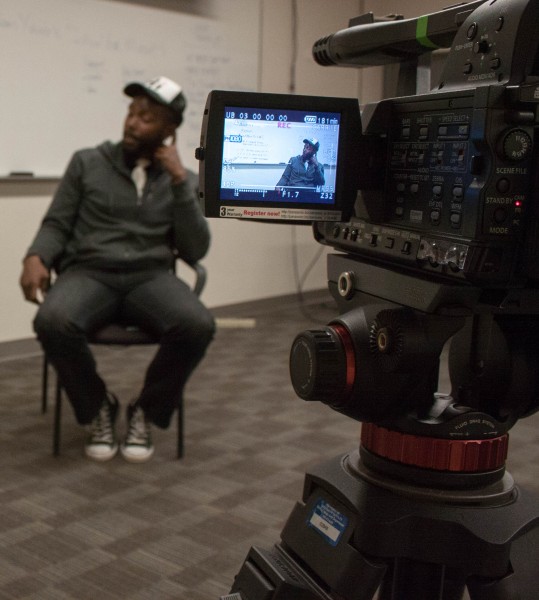
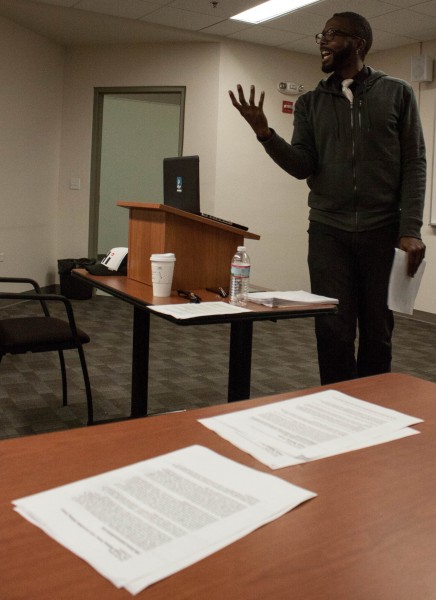
 Jackalope Magazine is the student magazine of Santa Fe University of Art and Design. Building on the interdisciplinary nature of our education, we aim to showcase the talent of our university and character of our city.
Jackalope Magazine is the student magazine of Santa Fe University of Art and Design. Building on the interdisciplinary nature of our education, we aim to showcase the talent of our university and character of our city.
Recent Comments